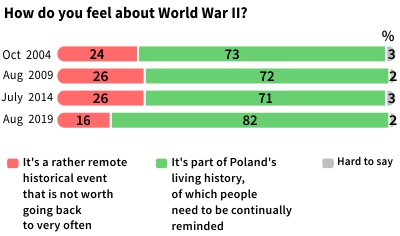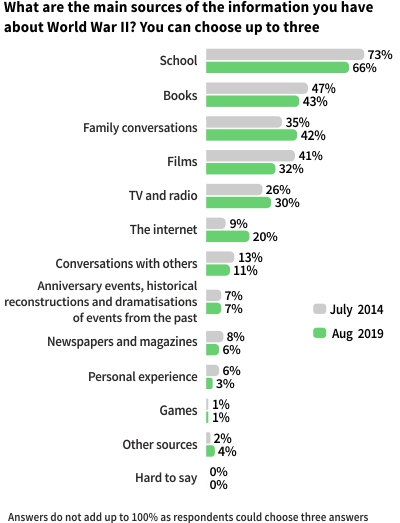25/2019
2019-09-20
How People Feel about World War II and Where They Get Their Information
The 1st of September 2019 marks the eightieth anniversary of the outbreak of World War II. In the days immediately leading up to this date, people were again asked about their attitude to those tragic events, which overturned the established order and to a large extent determined the nature of the world today. Despite the passage of time and the diminishing number of people who experienced World War II directly, the overwhelming majority of Polish adults think that this is still a live part of Polish history, which people need to be reminded of all the time. What is interesting is that the number of people expressing this view is considerably higher now than five years ago. Concurrently, fewer people now think that World War II is a historical event from the past, which is not worth dwelling on. Over the period 2004 – 20014 no significant changes had been noted in the relative size of these two groups.

|
As in previous years, the main factor in people’s attitude to World War II was not age but political preference. While most respondents, irrespective of their declared political orientation, believe World War II is a part of Poland’s living history of which people need to be constantly reminded, this opinion was most often expressed by people identifying with the political right (89%).
From the responses of the people surveyed, it appears that what people know about the war comes in the greatest part from what they learnt at school. An important role is also played by books and family conversations, also films, TV and radio. It is worth noting the clear growth in the role of the internet as a provider of information on this subject: in 2014 it was indicated by 9% of respondents, while currently this is 20%.

|
More on this subject in the CBOS report.
The above data comes from ‘Current Events and Problems’ surveys carried out in the period 2004–2019.





